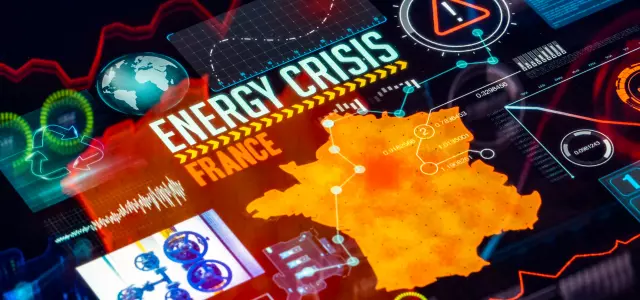
This article originally ran on Forbes.com on February 21, 2024. All rights reserved.
Daniel B. Markind is a Forbes.com energy column contributor. The views expressed in this article are not to be associated with the views of Flaster Greenberg PC.
Over the last four years, numerous military coups have rocked countries in central and west Africa. The most recent was last year in Niger, which caused consternation in the West as it toppled a democratically elected ally in a country of major strategic importance for the First World. In each case, from Guinea in the west of Africa to Sudan in the east, a pro-Russian junta took over as ruler of the nation. Now, these juntas have taken steps to wrap themselves in anti-Western rhetoric and have taken preliminary steps to rid themselves of the vestiges of their colonial past. In so doing, they could destabilize European economies and energy supplies and, in the process, undermine the world-wide commitment to clean energy and the fight against climate change.
In 1975, fifteen West African countries joined together in a semi-economic and political community known as “ECOWAS” (Economic Community of West African States). Following the coup in Niger in 2023, ECOWAS took a strong stand and demanded that country’s junta to restore democratic rule. The military rulers refused. ECOWAS then gave the junta an ultimatum: If democracy was not restored by August 6, ECOWAS troops would invade Niger. The junta refused again, but ECOWAS forces did not invade (Source).
Perhaps emboldened by such defiance, the junta in Niger then joined with separate juntas in Mali and Burkina Faso to declare, on January 28, that they would together leave ECOWAS as it had become a “threat to its members”. Along with this withdrawal, the three states also announced that they were adopting their own currencies and junking the CFA, which is the currency based on the former French franc that is still being used by many former colonial states who had been ruled by the Élysée Palace from before 1960. In response, ECOWAS completely backed down. On February 18, it announced that it would be lifting its economic sanctions against Niger, hoping that this would keep Niger in the fold and separate it from its announced alliance with Mali and Burkina Faso.
While desperately poor in terms of GDP, these countries are almost embarrassingly rich in untapped mineral resources. This inherent wealth has historically been exploited by the colonial powers, giving the junta leaders both moral credibility and popular support for their moves. For France, that enmity has direct energy implications.
Specifically, Niger is the seventh largest producer of uranium in the world. This is especially important for France because, unlike other Western countries have done, Germany being a good example with its historical reliance on coal and, more recently, natural gas, France never withdrew from its initial commitment to so-called “clean” nuclear energy. That is, as recently as 2021, France was still producing 68% of its energy from nuclear sources, this being the largest percentage of nuclear-derived energy of all countries in the world (Source). Meanwhile, France obtains much of its uranium from Niger and, in order to keep its commitment to nuclear power continuing, France needs to be certain that its uranium supply remains relatively constant and is sufficient for its future needs. However, according to Niger, that uranium supply was plundered from Niger by France in the past at cut rate prices.
As a result, Niger is now not only threatening to stop using the CFA altogether – which incidentally makes French commerce with its former colonies quite profitable for that country – butas late as last week, the Niger Head of State, General Abdourahamane Tiani, announced that Niger is now demanding cash payments from France “for 65 years of looting.” (Source)
Nobody yet knows what Niger’s junta government means by this, and nobody knows if Niger will follow through on its threats, but all of this does underscore a major French energy vulnerability. That is, there is little current sympathy or empathy for France among its former colonies in Africa (Source). Now, however, France faces the same question that all Western countries inevitably have faced or will face – that being where will it get the raw materials needed to provide its energy, especially at a time when continuing displeasure with the vestiges of its colonial past continue to be resurrected. Yet, France has continued to rely on a natural resource – again, uranium – supplied by people whose resources France historically has exploited. With the Ukraine war still raging and Europe’s energy supply increasingly uncertain as whole, France, which always seemed to have, perhaps, the most secure energy supply among all Western nations, now finds itself having to answer for the lingering effects of its own colonialist past as it tries to secure its future as a leader in the continuing search for clean energy throughout the globe.

